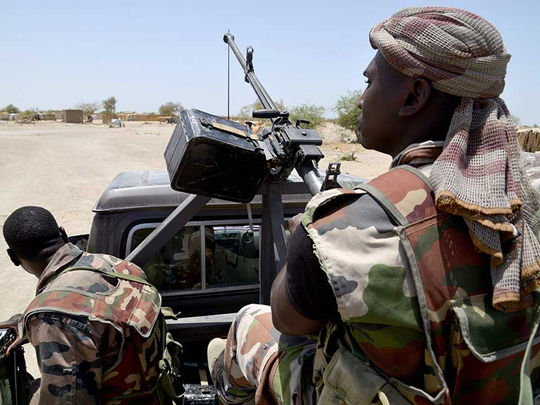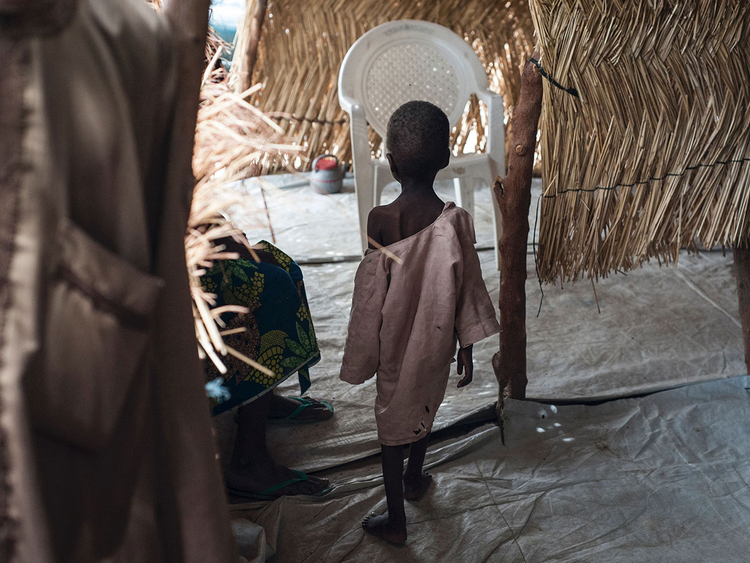
Nairobi: Almost a quarter of a million children are severely malnourished in a single state in northeastern Nigeria, where a violent campaign by Islamist extremists has displaced more than a million people and kept aid groups away, a major international group reported Tuesday.
According to the Unicef report, about 50,000 of the children will die if they don’t receive food and medical attention soon.
The report focused on Borno state, which has suffered the worst of Boko Haram attacks and mass kidnappings. Yet while those crimes are well known — particularly the kidnapping of more than 200 schoolgirls from the town of Chibok — the immense humanitarian impact of the group’s campaign has received much less attention.
Northeastern Nigeria is now the site of one of the world’s largest displacement crises, with more than 1.4 million people having been forced to flee their homes. But because the area is inaccessible and dangerous, it receives relatively little international assistance. Nigeria’s own aid apparatus has a limited record of effectiveness, and some experts say it is plagued by severe mismanagement.
“There are 2 million people we are still not able to reach in Borno state, which means that the true scope of this crisis has yet to be revealed to the world,” said Manuel Fontaine, Unicef’s director for West and Central Africa. “There are organisations on the ground doing great work, but none of us are able to work at the scale and quality that we need. We must all scale up.”
In addition to the displaced, many of those facing severe food shortages once relied on farms that have been destroyed or raided by Boko Haram combatants. The malnutrition crisis has been exacerbated by the collapse of government services in areas where the insurgents have been active.
Thirty per cent of health facilities and 70 per cent of the water infrastructure in Borno has been ruined or damaged, according to the United Nations.
Beginning in 2011, Boko Haram took over enormous amounts of territory in Nigeria and moved into neighbouring Cameroon and Chad. The Nigerian military has dislodged the fighters from most of their strongholds. But the insurgents have maintained their capacity to regularly strike soft targets, such as mosques or displacement camps. That has made it difficult for many aid groups to operate.
“Though many of these areas are no longer under Boko Haram control, they are still dangerous,” said Doune Porter, a spokeswoman for UNICEF in Nigeria.
At one displacement camp in the city of Bama, the aid group Medecins Sans Frontieres reported last month that people were dying of starvation daily.
Unicef has appealed for $55.5 million (Dh203.86 million) to respond to the crisis in northeastern Nigeria but has received only $23 million.
“All the humanitarian actors are under-resourced and underfunded, and it’s an extremely difficult problem,” Porter said.













